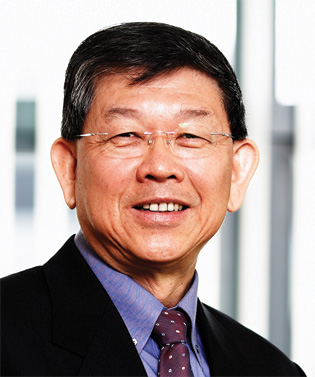Young Children’s Voices in Mathematical Problem Solving
Contributed by Dr Ho Siew Yin and Sng Wei Qin Abbie, from NTUC First Campus, for SingTeach Virtual […]
Read More
“Education is a long-term endeavour. A child entering Primary 1 next year will start work around 2030. What must we do right in education now and in the next 20 years, so that our children will have a bright future and can fulfill their aspirations?”
This was the challenge posed by Education Minister Heng Swee Keat at last year’s MOE Work Plan Seminar. The goal of education today is to enable our students to be ready for the long term.
For NIE Director Professor Lee Sing Kong, the key to achieving this lies in quality teachers: “Teachers are ultimately what make education succeed.”
This has been echoed in many education research studies. In fact, good teaching has been shown to be the most important determinant of student outcomes (e.g.,see McKinsey & Company, 2007, 2009, 2010).
 So, what makes a good teacher?
So, what makes a good teacher?
“Good teachers impart knowledge, but great teachers are able to ignite the love for learning,” says Prof Lee. “The mastery of content, the ability to teach it well, being able to size up their pupils’ needs – all these qualities are still needed in teachers today.”
But the changes brought about by technological advancements have challenged many of our taken-for-granted notions of good teachers and good teaching.
“With the Internet, the role of the teacher has changed,” notes Prof Lee. No longer seen as the sole purveyor of information, the teacher now needs to function as a facilitator to guide students to access, evaluate and use information.
There is also growing awareness that the teacher’s role goes beyond imparting knowledge, to developing values and skills.
Minister Heng noted that if we are able to build strong values and the right competencies in our students, we can then foster an education system that is student-centric and values-driven.
Echoing the same sentiments, Prof Lee says: “Every teacher must equip his students well to survive and succeed in the new global landscape. And the new landscape demands that teachers develop the whole child – not only intellectually, but also socially, morally, physically and aesthetically.”
– Prof Lee Sing Kong, Director, National Institute of Education
How does someone become a good teacher? “There is no such thing as a born good teacher,” says Prof Lee. “Even the most genetically blessed teacher must be trained to become a good teacher.”
The training of future teachers is what Lee Shulman, Emeritus Professor of Education at Stanford University, would call being “prepared to be professionals”. It is something that has concerned him and his colleagues from the Carnegie Foundation for the Advancement of Teaching in recent years.
What do teachers need to know in order to teach well? How can teachers best be educated?
Speaking at an NIE seminar in September 2011, the originator of the concept of pedagogical content knowledge (or PCK) offered the following description of the work of teacher educators:
“An educator of teachers is someone who uses both knowledge of pedagogy and knowledge of content, along with a strong dose of moral values, to mess with the development of future teachers by educating them.”
These are concerns that matter to teacher educators at NIE as well. Any teacher education programme needs to answer three key questions: Why teach? What do we teach? How do we teach?
New teaching techniques, new learning environments, new educational research – all these require teacher educators and teaching practitioners to be relevant and responsive.
As the education landscape quickly shifts under our feet, we must also ask: What else needs to change?
For NIE, this means striving to constantly evolve our teacher education programmes to keep up with the changing learning environment because we believe the teaching profession plays a crucial role in building the future of our nation.
This ever-changing environment also turns the tables on teachers, making it necessary for them to be learners too.
“A good teacher is constantly looking for more effective ways to teach and learn,” says Prof Lee. “It is something we emphasize in teacher training and hope it becomes an in-built thing for teachers we send out to schools.”
References
Davie, S. (2011, June 1). Secrets of a good teacher. The Straits Times, p. A16.
Heng, S. K. (2011, September 22). Opening Address by Mr Heng Swee Keat, Minister for Education, at the Ministry of Education (MOE) Work Plan Seminar at Ngee Ann Polytechnic Convention Centre. Retrieved from https://www.moe.gov.sg/media/speeches/2011/09/22/work-plan-seminar-2011.php
McKinsey & Company. (2007, September). How the world’s best-performing schools come out on top. Retrieved from https://mckinseyonsociety.com/how-the-worlds-best-performing-schools-come-out-on-top
McKinsey & Company. (2009, November). Shaping the future: How good education systems can become great in the decade ahead. Report on the International Education Roundtable. Retrieved from https://www.mckinsey.com/locations/southeastasia/knowledge/Education_Roundtable.pdf
McKinsey & Company. (2010). How the world’s most improved school systems keep getting better. Retrieved from https://mckinseyonsociety.com/how-the-worlds-most-improved-school-systems-keep-getting-better
Shulman, L. (2011, September 13). Signature pedagogies in the profession. Presentation at National Institute of Education Seminar, NTU Alumni Club, Singapore.